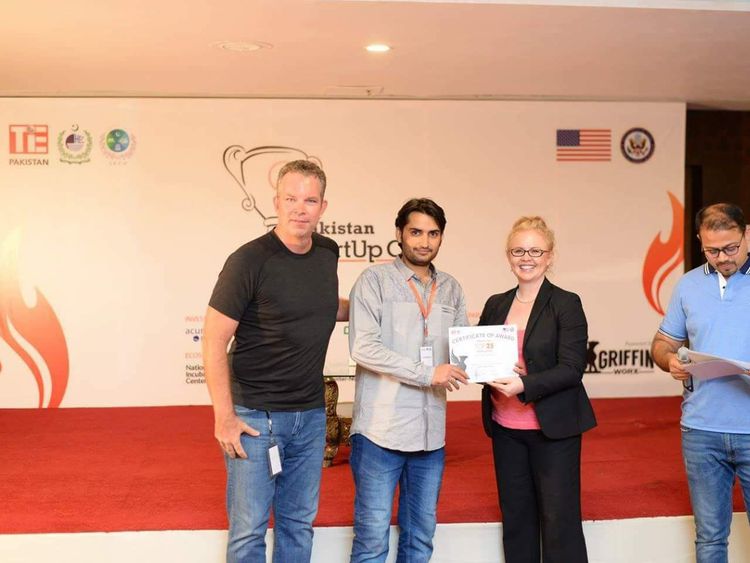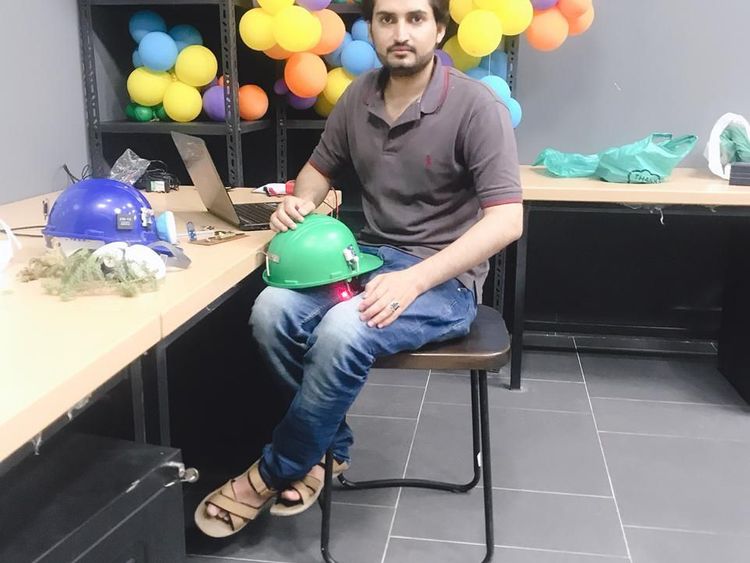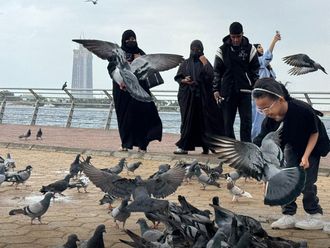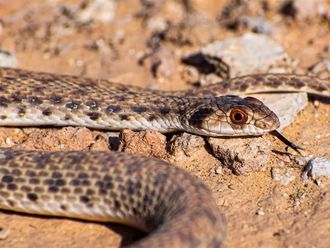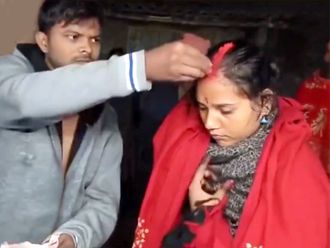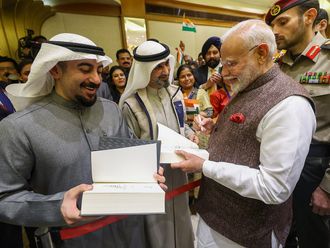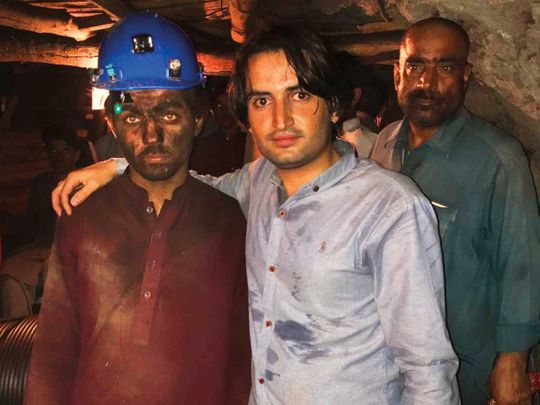
Islamabad: In the pitch black mines of Balochistan in southwestern Pakistan, hundreds of coal miners struggle every day in precarious situations, breathing in dust and praying to God to get them home safe.
The prayers of nine miners, however, could not be answered as they suffocated to death after a July 14 accident in Balochistan’s Degari coal mine and their bodies retrieved two days later.
“Those lives could have been saved. These treasured mines have devoured so many of our hardworking men,” said 24-year-old student Ali Gul. But he is not one to sit back and complain.
Gul has vowed to save the lives of coal miners by developing an innovative Eye Smart Helmet. The prototype is ready and uses sensors to monitor coal mine conditions and levels of toxic gases. It also keeps track of real-time location and the vital signs of miners and predicts danger through the use of artificial intelligence (AI).
“If the miner is in immediate danger because of a gas leak or imminent collapse, the alarm will be activated which will send out an alert to both miners and the team outside the mine who can monitor their positions and rescue them in time,” Gul explained.
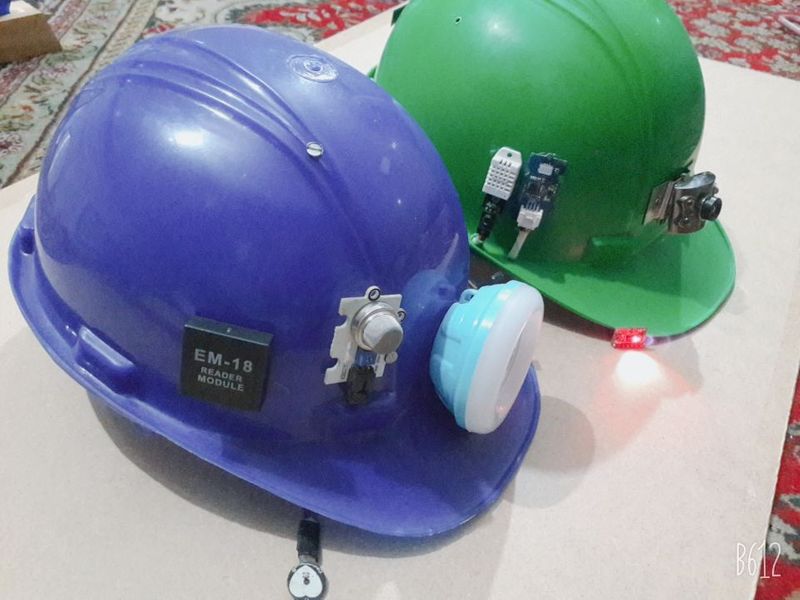
Early cost estimates put the battery-powered headgear at nearly Rs20,000 (Dh454.7) or less than $135 — an amount that has been deemed affordable by industry experts, he said.
“The product will not only save the lives of the coal miners but also save millions of rupees for the coal mining industry by accurately predicting future accidents/coal mine collapses” Gul told Gulf News.
Gul hails from the small town of Sanjawi Tehsil in Ziarat District located in Pakistan’s largest but least populated province. Despite being rich in natural gas, coal, metals and minerals, the province has long remained underdeveloped where health, education and other facilities are concerned.
Although the dark, cold tunnels and blackened faces of the miners in his region have been a familiar sight, what compelled him to improve their work conditions was his brother Gul Mohammad being involved in a mine accident in 2015.
“My brother fortunately survived the mishap but that day I decided to do something for all those people who have to go through this pain,” he said.
An idea initially started as a university test project in 2016 at the Balochistan University of Information Technology, Engineering and Management Sciences (BUITEMS) has now become a full-fledged start-up that won a Rs14 million grant from Pakistan’s High Education Commission (HEC) this year. The funding will be offered over a period of one year beginning from July 2019.
“We will be doing a lot of research on mines and working conditions to improve the prototype in the coming months. The final product should be available by June next year,” Gul claimed. “If I had the funding and access to essential tools and equipment earlier, the helmet would have been ready by now. But thankfully our efforts paid off as we secured the funding.”
The innovative helmet is a hope of survival for thousands of coal miners not only in Pakistan but also in many countries of the world, says Dr Waheed Noor, who has a PhD in machine learning from the Asian Institute of Technology, Thailand, and is currently supervising the project.
Admiring the inventor’s passion, he said: “Ali has made all of Balochistan absolutely proud with his hard work and resolve to offer a safe working environment to the miners”
Dr Noor says that some of the unique features of the product, such as the use AI, make it a first-of-its-kind in the world and they would soon apply for the patent. After learning about the success on social media, some foreign clients have contacted the team but they want to serve their home country first where approximately 300,000 unregistered (of them about 50,000 licensed) coal miners work at nearly 3,000 mines across the Balochistan province, according to All Pakistan Labour Federation.
An estimated 200 labourers die on average in coal mine accidents every year, according to the Pakistan Central Mines Labour Federation. The main reason behind the high number of casualties is the collapse of mines due to the methane explosion blast and fire as well as the lack of timely rescue services.
This is where Gul’s helmet can help both the miners and mine owners.
“Every day the mine workers work with the fear of being buried alive because of lack of safety measures and little or no use of technology,” he said. “This helmet can benefit them from both safety and productivity perspective.”
He, however, adds that any technology or solution will remain futile without necessary legislation and regulations that make it absolutely necessary to wear the headgear before going into the mine.


